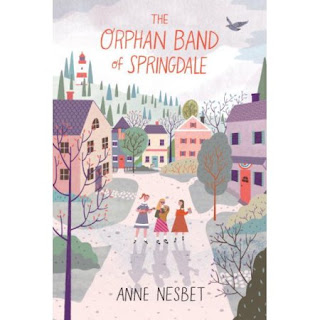Books that make you go "Hmmmm"
It's sometimes hard to find a book that will get kids to think deeply about anything. We seem to be firmly entrenched in a sound bite, 140 character limit, emoji laden world, so having something to consider thoughtfully is a real treat. Here are two books that might make you go "hmmmm".
The first one is a picture book. It's called "Crocodile's Crossing: A Search for Home" by Yoeri Slegers. The book opens with Crocodile already on his way somewhere new. He's scared and hopeful because at home where he used to be happy, it's no longer safe. He finds new places that are very different and not very welcoming to crocodiles. He is about to give up, when he finds a community of mice who welcome him. Things are not like they were at home, the food is different, but Crocodile tries and eventually makes a place for himself and is able to bring his family with him. This is a marvelous story about immigration. The art work surrounding the parts about why Crocodile left are dark and scary but empty enough to invite conversation and speculation about what was so scary that Crocodile would be willing to leave his family. The pages where Crocodile is trying to find a home are busy and intense and again would lead to conversations about why some communities might not welcome someone who was so different. In the end, showing how Crocodile benefits the mouse community in ways they never dreamed of also invites conversation about immigrants' contributions to communities. I thought this was a terrific story to help kids understand immigration. I think this would be an important book to help kids develop empathy as well as develop a deeper understanding of why their own families got to where they live now.
The second one is a non-fiction book by one of my favorite authors, Sandra Markle. This one is called The Great Bear Rescue-Saving the Gobi Bears. Until I read this book, I had no idea there were bears that lived in deserts. This particular group of bears live in the Gobi Desert in Mongolia. It turns out that when the farmers started drilling wells to water their sheep, goats, and camels, the animals stayed in one place longer to graze, destroying some of the bears habitats. People started noticing and asking the government to help out. Scientists found in particular, that bears weren't gaining enough weight in the summer so that when they hibernated they were too weak to survive or too weak to feed their new babies, which are born during hibernation. The scientists started tracking the bears and found that by putting out feeding stations that the bears could gain the weight they needed to help them survive. I always admire Sandra's work about interesting animals and the scientists who help the animals. I know my students are going to love this one too.
And here's a little video about the Gobi Bears.





Comments
Post a Comment